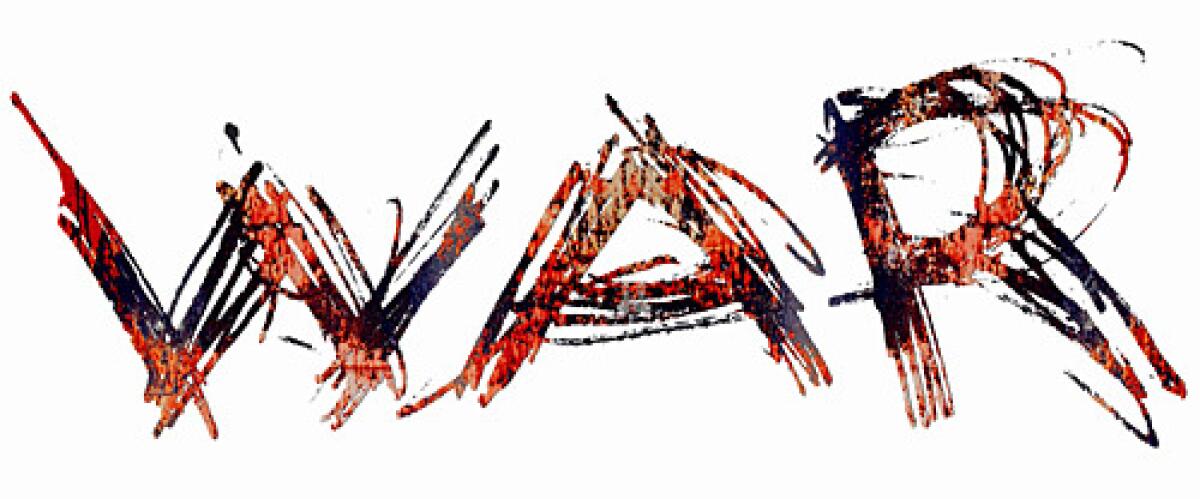Book review: ‘Almost Dead’ by Assaf Gavron

- Share via
Almost Dead
A Novel
Assaf Gavron
Translated from the Hebrew by Assaf Gavron and James Lever
HarperPerennial: 328 pp., $14.99 paper
How great is Assaf Gavron’s fourth novel, “Almost Dead”? The answer, I suppose, depends on how comfortable you are with the idea of a black comedy about suicide bombing, which is what this book is. That it’s also more than that should go without saying, although in our culture, with its penchant for the sound bite, those textures run the risk of being overlooked. That would be unfortunate, for in “Almost Dead,” Gavron has pulled off something I would have thought to be impossible: to make us reconsider the very nature of terrorism, what it is and how if affects us, from both a survivor’s and a bomber’s point-of-view.
The survivor here is Eitan Enoch, nicknamed “Croc,” a feckless thirtysomething living in Tel Aviv and working for a tech startup called Time’s Arrow, which looks for ways to streamline the transactions of the business world. “My role is to find dead seconds,” one of Croc’s associates declares, describing his efforts to make Tel Aviv’s traffic light intervals more efficient. “This story is about how I have found seven superfluous seconds in Rabin Square.” Lest that seem a trivial enterprise, those extra seconds add up. “Take, for instance, these clients of ours who provide [directory assistance] service in Manhattan,” Croc explains. “They’ve got a couple of thousand operators in New York answering calls coming in non-stop — 5.5 million phone calls a day in search of telephone numbers. If we can save one second from each call we save 5.5 million seconds a day, which is 63 days, or almost three working months of an employee.”
The irony — and it’s a bitter one — is that just outside the Time’s Arrow offices, a different sort of time is in effect. This is terror time, time that can be stopped in an instant, as Croc has experienced firsthand. In the novel’s opening scene, his morning bus is blown apart by a suicide bomber just after he has disembarked. “According to Ynet,” he tells us, “there were ten Israelis killed and one suicide bomber. The result: 10-1. The Jews lose again, or at any rate it’s a scoreline that’s going to need quite a bit of a positive gloss.” And yet, for all his offhand fatalism, Croc can’t help but feel a certain guilt. “Why had he waited until I got off?” he wonders. “What kept me alive? Why had God stretched out one of his long fingers and miraculously tapped my forehead?” This sensibility grows more pronounced when he survives two additional attacks in the next week and becomes something of a national hero after stumbling through a television interview that ends with him uttering, “We need to be strong, not to be cowed.”
Were “Almost Dead” merely Croc’s story, this would be the high point, a cynical commentary on how the empty mechanisms of Western secular culture (technology, entertainment) butt up against the darker contours of a blood feud that has been going on for thousands of years. Gavron’s real genius, however, is in interweaving the voice of a Palestinian bomber named Fahmi who narrates his story from the depths of coma-sleep. Wounded while attempting an assassination, Fahmi adds dimension to the novel by forcing us to consider both sides of the equation, the injuries and injustices that may be all the Israelis and Palestinians truly share. It’s impossible to read his accounts of indiscriminate detention or the bulldozing of houses in refugee camps without seeing a correlation between them and the random terror of the young jihadis who blow up buses and shoot at cars. But Gavron isn’t making excuses; he’s implicating everyone.
“So what is going through your head when you are sitting in a green Polo on a clear night, a hand grenade inside an imitation leather pouch in your lap?” Fahmi reflects. “… You wanted your life to have a purpose. But will it matter at all, to anyone or anything, if you take your finger out of the ring, open the door and climb out of the car … and in the morning set off back home to the camp or to Murair to find work, to eat, to sleep, wait, grow older, marry, live quietly?… Does it matter if you build a bomb? Rot in the ground? Start university? Go to Australia? Hold the grenade to your chest or throw it away? Does it matter?”
Here, we find the moral essence of the novel, made more so by the unlikelihood of its source. The issue is choice, or at least awareness, a recognition of how the smallest, most unthinking decisions turn out to be of consequence. “An infinity of ifs,” thinks Croc. “We stand at a crossroads a hundred times a day and we have to make our choices or we can never progress, and our choices determine who we are.” Such a commentary applies equally to him and his Palestinian counterpart. Throughout “Almost Dead,” both Croc and Fahmi are framed as symbols for causes that may not be their own. Each tries to find a passage through the madness but remains buffeted by circumstance. “You feel your turn waiting for you round the next corner,” Gavron writes. “Yours, or someone you love. It is embodied in the geography. It is encoded in the national genes.” That’s a telling statement, by turns resigned and nuanced, and in its understanding of the absurdities of fate, it cuts to the very marrow of this brilliant book.
Ulin is book editor of The Times.
More to Read
The biggest entertainment stories
Get our big stories about Hollywood, film, television, music, arts, culture and more right in your inbox as soon as they publish.
You may occasionally receive promotional content from the Los Angeles Times.










